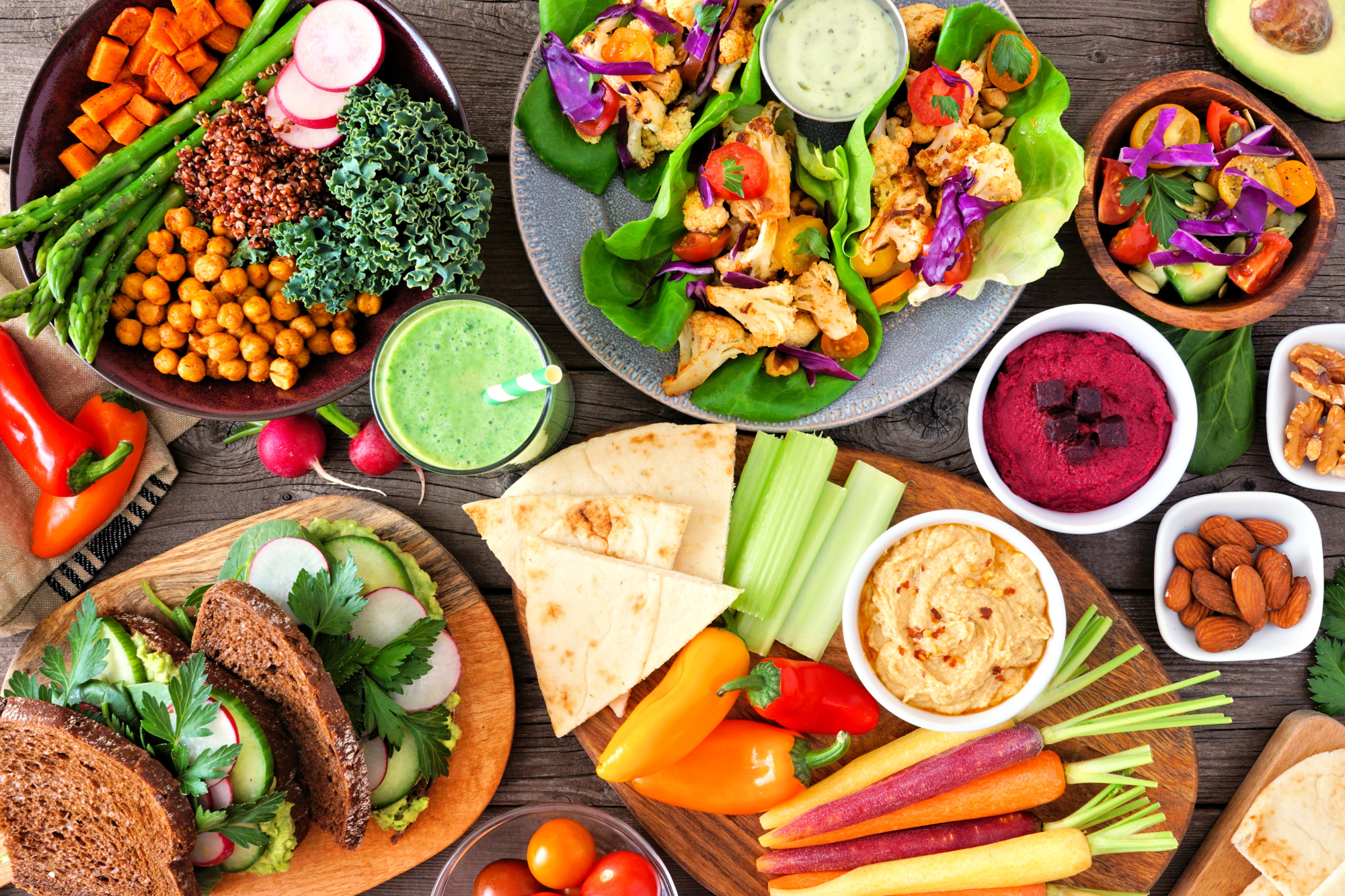The plant-based sector was seeing rapid growth before COVID-19 put the world on hold. While the global economy is certainly taking a massive hit from the regulations that have been imposed to stop the spread of the coronavirus, the alternative protein ecosystem may actually come out stronger from the crisis. In this turbulent moment, it is more crucial than ever to find innovative, sustainable ways to meet the world’s protein needs and transform the global food system. Governments, businesses, and consumers are recognising this need, and the current situation contains strong incentives to increase their efforts to move towards more plant-based food solutions.
On the way to a more resilient food system
In those turbulent weeks, empty grocery store shelves laid bare at least two realities: when modern society comes to a halt, food remains essential – and so does toilet paper. Many businesses are struggling with disruptions in the market, and people all around the world are faced with uncertainty about the future. At this stage, nobody can predict how travel bans, public life shutdowns, and healthcare challenges will affect the global economy. Yet it seems more than reasonable to expect that, from a consumer standpoint, the demand for safe and healthy food options will increase in response to the crisis. Plant-based alternatives may well fall into that category since they often pose less of a health risk compared to their perishable animal-based counterparts. For example, plant-based egg startup JUST Egg has already seen a rising number of inquiries from some of China’s larger food manufacturers.1
Plant-based menu items as a unique selling point for food services
Food-service enterprises are some of the businesses that are most affected by the current situation. In many countries, restaurants and cafes have to stay closed. With schools and company canteens also being shut down, numerous catering companies are temporarily out of business. Food-service providers that are lucky enough to be able to pivot to selling their foods via contact-free delivery services are still able to keep their heads somewhat above water.
While the current situation is scary for both small and large companies, the sudden halt of daily business can also be seen as a welcome opportunity to step back and analyse one’s business model: where are we and where are we headed? With the cascading effects of the current shutdowns being far from predictable, it might be more crucial than ever to think about one’s unique selling point. When the regulations loosen up again, why would people seek out my products or venue specifically?
‘The hospitality industry is in need of a shake-up’
Hospitality expert Jerome Pagnier explains why adding plant-based options to the menu can be a real game-changer for food services.
“The industry is plagued by companies with the exact same model doing essentially the exact same thing,” says Jerome Pagnier, former Director of Food & Beverages at Grand Hyatt Singapore. “Introducing food-tech products, particularly plant-based alternatives, pulls you out of that sea of sameness and immediately makes you a forward thinker, a pioneer, a visionary. In my experience, it has been extremely beneficial in terms of marketing, differentiation, and subsequent financial returns.” Plant-based dishes are overdue to step up from being the neglected bottom-page option to making it to centre-stage. From black-bean tempeh burgers to sweet potato chickpea curry to salted-caramel ‘nice-cream’, now is a great time to really get creative about one’s menu, to spice it up, add some colour, and step beyond traditional food concepts.
Vulnerable value chains
Animal-based food production is far from being resilient. From feed imports to breeding to live transportation to slaughterhouses to short shelf-lives of the final products, the animal-product value chain is long, with each of its stages vulnerable to disruption. The recent spread of African swine fever in China has led to the killing of millions of pigs, significantly boosting pork prices all over the world.2 3 The coronavirus-induced blocked shipments of animal feed led to the slaughter of at least 100 million young chickens in China, while the closing of borders delays the transportation of live animals across Europe.4 5 This is not just a disaster for the farmers whose livelihood is at stakes. Such vulnerable value chains are a threat to global food security.
Bold innovators needed – now more than ever
Plant-based startups might be in a great position to benefit from current developments as governments, investors, corporations, and consumers are seeking out more local and resilient food-supply chains. While startups are highly vulnerable to financial losses, they are not reliant on multinational supply chains and could actually be the ones providing impactful solutions. “Major accounts suddenly started knocking at our door,” says Veronica Fil from Grounded Foods. “Supermarket chains, quick service franchises, and meal kit delivery companies, all contacting us out of the blue asking for samples, spec sheets, and to lock in purchase orders. At the same time, venture capitalists from all over the world – particularly the Asia Pacific region – started requesting meetings to find out more about our dairy-free products.”
ProVeg Incubator
The ProVeg Incubator is the first Incubator programme in the world to exclusively support plant-based and cell-based food startups.
What will customers be looking for?
During a pandemic, people’s awareness of their own health increases. Tastewise, a data-analysing startup driven by artificial intelligence, noted a “staggering growth” in internet searches between February 2019 and March 2020 for foods that are associated with possible health benefits, ranging from citrus fruits to elderberry and kombucha.6 The number of consumers focussing on ‘health’ as a desired food quality is predicted to climb further, fueling a known trend: recent market-research reports have forecast a growing demand for products that can tick off boxes such as clean-label, sustainable resources, and low-sodium.7 8 “Consumers will reward companies that take action and improve important societal issues,” states market-research company Mintel’s Food & Drink Trends 2030 report, which also notes that “the companies that will win the next 10 years will be those that fuel the new era of conscious consumption.”9
>References
- Bloomberg Green (03.03.2020): Virus Spurs Chinese Interest in Vegan Eggs as Protein Source, online at https://www.bloomberg.com/news/articles/2020-03-03/virus-spurs-chinese-interest-in-vegan-eggs-as-protein-source [26.03.2020]
- Food and Agriculture Organisation of the United Nations (05.03.2020): ASF situation in Asia update, online at http://www.fao.org/ag/againfo/programmes/en/empres/ASF/situation_update.html [30.03.2020]
- Financial Times (15.10.2019): African swine fever drives up European pork prices, online at https://www.ft.com/content/5d6a2c8a-eab5-11e9-85f4-d00e5018f061 [31.03.2020]
- Financial Times (Feb 2020): Coronavirus fears force China into mass chicken cull, online at https://www.ft.com/content/4bdf0a4e-4e1f-11ea-95a0-43d18ec715f5 [27.03.2020]
- The Guardian (23.03.2020): Cattle gridlock: EU border delays add to coronavirus strain on meat trade, online at https://www.theguardian.com/environment/2020/mar/23/meat-prices-could-rise-as-covid-19-adds-pressure-to-vulnerable-supply-chain-coronavirus [27.03.2020]
- Food Navigator (18.03.2020): Coronavirus sparks ‘staggering growth’ in online searches for foods with functional benefits: report, online at https://www.foodnavigator.com/Article/2020/03/18/Coronavirus-sparks-staggering-growth-in-online-searches-for-foods-with-functional-benefits-report [27.03.2020]
- Food Navigator (10.03.2020): The salty truth about out-of-home meals risks plant-based consumer backlash, online at https://www.foodnavigator.com/Article/2020/03/10/The-salty-truth-about-out-of-home-meals-risks-plant-based-consumer-backlash?utm_source=newsletter_daily&utm_medium=email&utm_campaign=10-Mar-2020 [30.03.2020]
- Food Navigator (16.10.2019): Consumers ‘want more from their clean label products than ever before’: BENEO, online at https://www.foodnavigator.com/Article/2019/10/16/Consumers-want-more-from-their-clean-label-products-than-ever-before-BENEO [30.03.2020]
- Mintel (10.12.2019): Global Food and Drink Trends 2030, p14, online available at https://www.mintel.com/global-food-and-drink-trends [27.03.2020]










